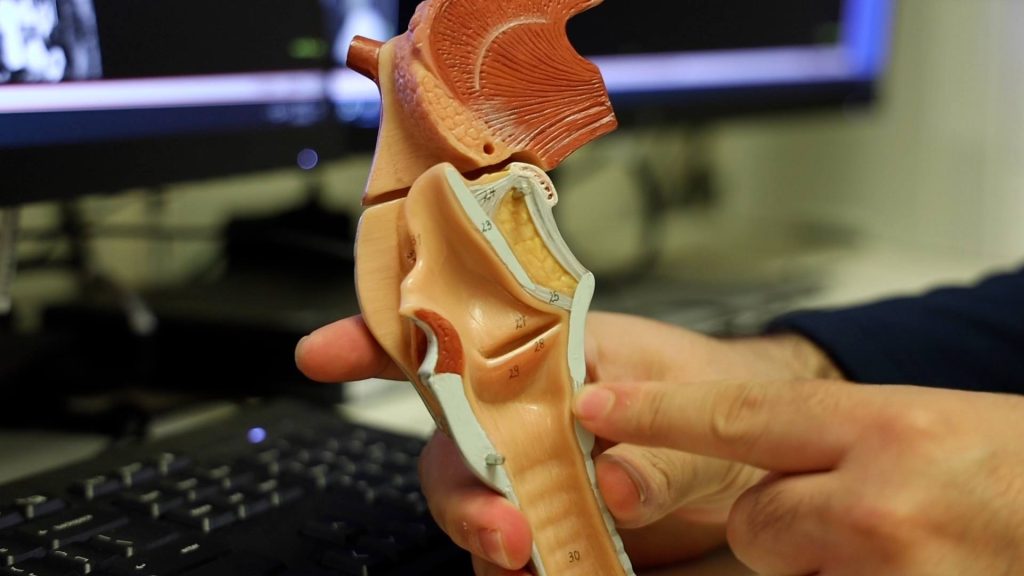
You may have heard about a recent first at Mayo Clinic, a total larynx transplant. What you may not have heard was what precipitated that transplant. The patient developed a rare form of cancer called laryngeal chondrosarcoma.
Dr. David Lott is a Mayo Clinic otolaryngologist who specializes in laryngeal cancer. He says your larynx, or voice box, essentially sits in the middle of your throat. “And it has a bunch of jobs. It is the primary organ that’s responsible for your ability to speak, for your ability to swallow, to eat and drink, and to breathe,” says Dr. Lott.
Watch: What is laryngeal chondrosarcoma?
Journalists: Broadcast-quality video pkg (1:35) in the downloads at the end of this post. Please courtesy: “Mayo Clinic News Network.” Read the script.
Unfortunately, like the rest of your body, things can go wrong, including cancer.
“Laryngeal chondrosarcoma are cancers of the cartilage within the larynx,” says Dr. Lott.
It’s an uncommon cancer, accounting for about 1% of overall laryngeal cancers. Symptoms may include hoarseness, breathing difficulties and pain in the throat. “Laryngeal chondrosarcomas are treated a little bit differently than the typical laryngeal cancers,” adds Dr. Lott.
Step 1, he says, is determining the grade of cancer. Is it mild or a more aggressive form?
“If there’s a lot of destruction and the patient is having a lot of symptoms, like not being able to breathe or not being able to swallow or have lost their voice, then we need to act a little more aggressively to try to remove that tumor to try to preserve what function they have,” says Dr. Lott.
Because of its rarity and the intricate anatomy, this cancer type needs specialized care from a team of experts, including otolaryngologists and oncologists. According to Dr. Lott, unlike many cancers, even some other laryngeal cancers, “there really isn’t much that people do to get that type of a cancer. It’s not strictly associated with things like smoking or alcohol use. It tends to be, honestly, just bad luck.”
Additional resources:
